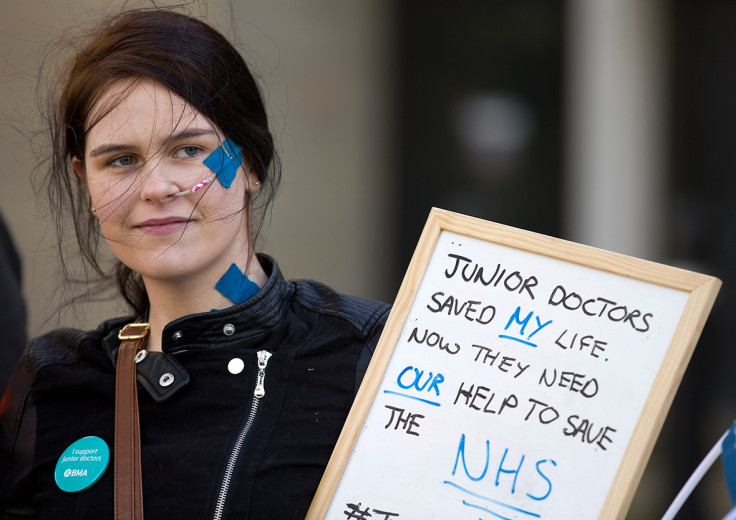Junior doctors' strike: Public support dwindles for NHS medics amid all-out walkout

Public support for striking junior doctors has dipped as the NHS medics stage their first all-out walkout across England on 26 and 27 April. The industrial action will take place between 8am and 5pm BST and will see the junior doctors walkout of emergency care for the first time in NHS history.
An Ipsos MORI poll, of more than 800 people between 22 and 24 April, showed a majority of the public (57%) do still support the industrial action from the British Medical Association (BMA). But the figure is down from 65% in March when junior doctors did provide emergency care during a 48-hour-strike
"We're seeing today that support for the junior doctors is still prevalent among much of the public, even when emergency care is withheld," said Anna Quigley, head of health research at Ipsos MORI.
"However, support is not as high as when we were polling for the strikes where emergency care was provided, as we suggested might happen in January. However, the erosion of public support has not been as stark as the January polling suggested, and the public still have some patience left for the junior doctors' cause."
The study, commissioned by the BBC, also discovered that the public increasingly thought both the junior doctors and the government were to blame for the ongoing industrial action. More than a third (35%) of respondents blamed both sides, up from 28% in March and 18% in February.
The dispute centres on the government's plan to introduce a new contract for junior doctors. The BMA has claimed the work agreement would endanger patients because the medics would be forced to work longer hours. However, the government has claimed the junior doctors will be paid more and the new contract is essential for a seven-day-a-week NHS.
Health Secretary Jeremy Hunt has declared that he will impose the new contract, arguing that the BMA has attempted to hold the government to ransom. Talks between the parties at mitigation service Acas broke down in January and the dispute has been played out in the media.
NHS England has estimated that 12,711 routine operations have had to be postponed because of the strike. Dr Anne Rainsberry, National Incident Director for NHS England, said: "The NHS exists to care for and treat patients and it is with enormous regret that we find patients put in this position.
"We have focussed our efforts on essential services including emergency care but the effects of this action will be felt far and wide with thousands of people having their operations postponed and their care disrupted for which we sincerely apologise.
"NHS organisations have tried and tested plans to deal with a range of disruptions to seek to ensure continued safe services for patients, which is always our top priority. The NHS has been pulling out all the stops to minimise the risks to the quality and safety of care but this is an unprecedented situation during a time of heightened risk."
© Copyright IBTimes 2024. All rights reserved.






